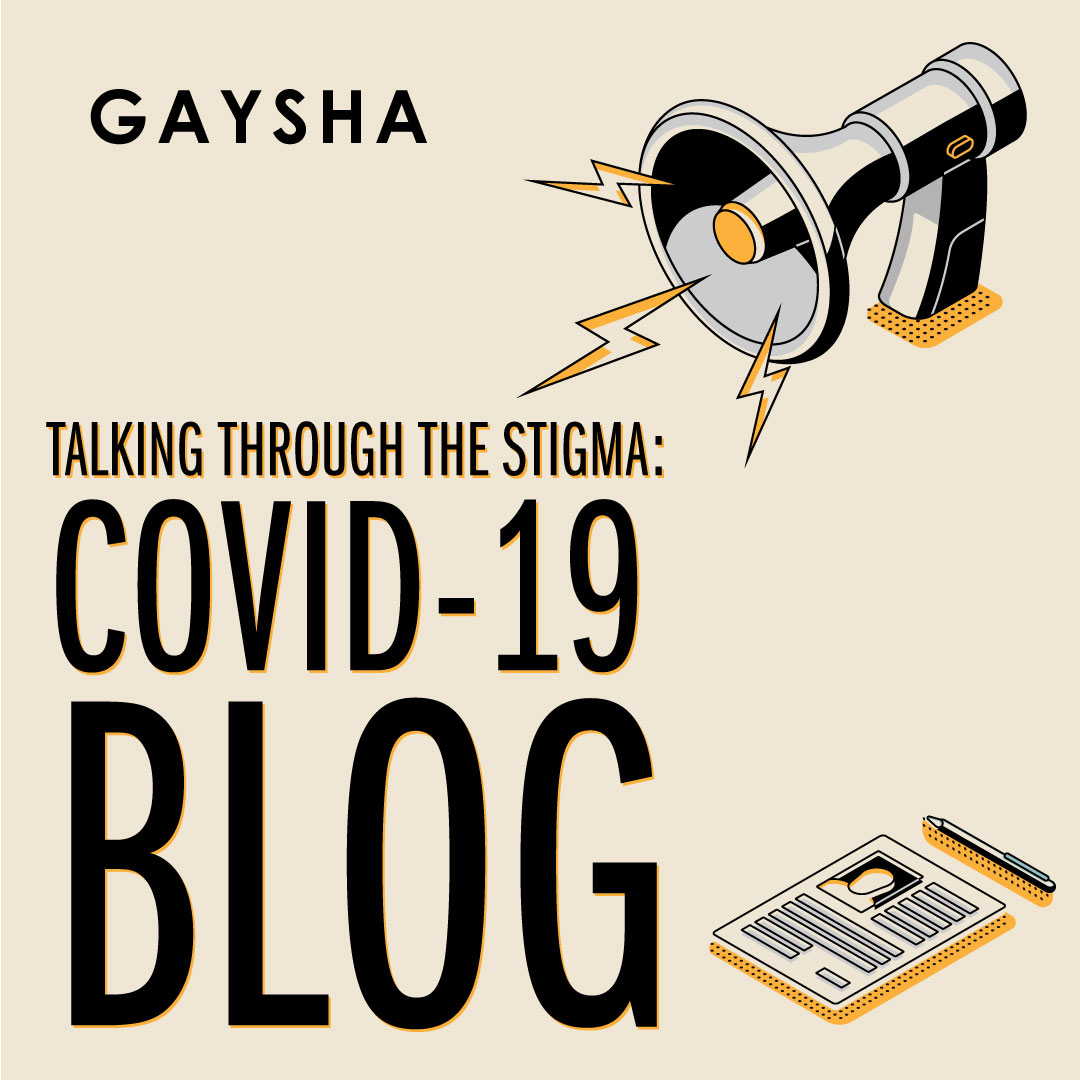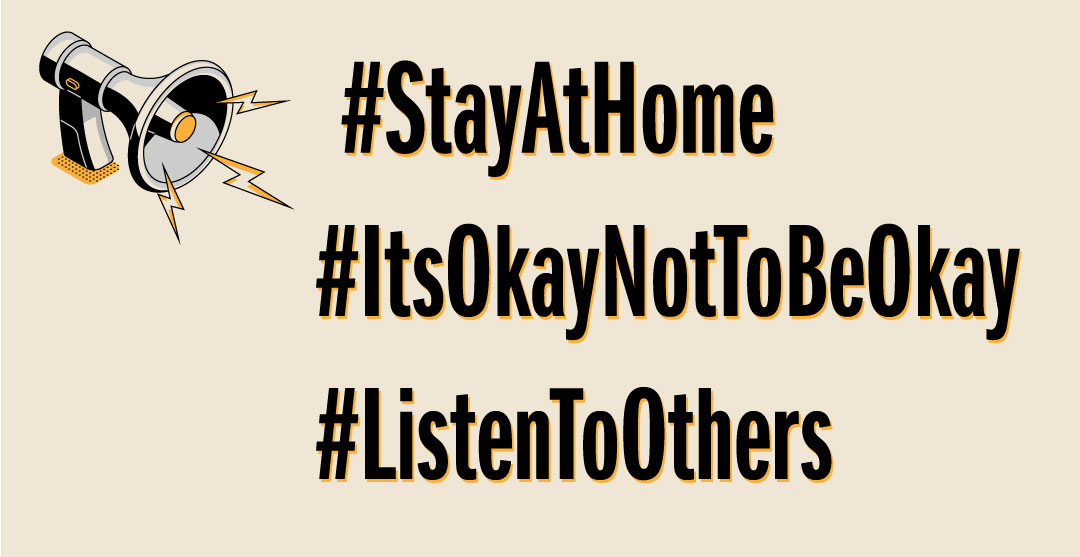“The Government is now advising us to avoid all but essential contact. This will mean that more of us will be spending a lot of time at home and many of our regular social activities will no longer be available to us. It will to try and see it as a different period-of-time in our life’s, and not necessarily a bad one, even if we didn’t choose it.” – Mental Health Foundation
While we are going through a period of uncertainty, it is imperative that you not only look after your own mental well-being, but those around you who also may be struggling with their mental well-being.
In testing times like these it can be very common for it to negatively affect someone’s mental state. This could be down to a whole host of reasons, including but not limited to the following; loneliness, uncertainty of incoming work, potential financial burden, anxiety about theirs or loved ones health, etc.

It is important in these moments that we stick together and not only support yourself, but the people around you, be it your loved ones, your friends, your neighbours, your colleagues or even a stranger (obviously if you are not self-isolating).
In this mental well-being blog, we wanted to share some tips with you to highlight some ways of taking care of your mental well-being.
Avoid Speculation
In these unknown times it is important that you inform yourself with only reputable sources. Rumour and speculation are two sources that increase anxiety. Having access to the most reliable and good quality information is a good way to control how you feel – ensure you keep up to date with the daily updates from the Government and experts.
You can get up-to-date information via the link below:
https://www.gov.uk/guidance/coronavirus-covid-19-information-for-the-public
Staying Connected & Healthy
While you are in isolation, it is important to try and incorporate some variety to your daily routine. Long periods of isolation or limited human contact can play a major role in the decline to someone’s mental well-being. While limiting contact with people is not always ideal, it is in this case, better to take pre-caution.
You can keep in contact with people through many different methods; through phoning, messaging, emailing, video calling, Zoom or Skype calling or social media. However, if you do feel like you need some emotional support you can use any of the numbers below:
- Samaritans – call 116 123
- Mind – call 0300 123 3393
- Mental Health Foundation – 020 7803 1101
- Anxiety – 08444 775 774
It is also very important that if you have already been speaking to a therapist or specialist, that you look to ensure that communication is ongoing. Either, is there a way that you can still travel in to see them, or, is there a way that you can still speak to them through a Zoom or Skype call?
It is important that you try to keep active and do activities that are only going to increase your mental well-being. While some certain activities may be off limits due to Government advice, there are still activities that you can do. These may include the following:
- Ensure you get up and shower and get dressed.
- Get as much sunshine and fresh air as possible at home. Open curtains and windows if you do not have access to a garden.
- Check in on someone who you may know struggles with mental well-being or someone that is more likely to be affected by Coronavirus.
- Eat well – ensure you in these more challenging times you try to still have a well-balanced diet.
- Drink plenty of water.
- Reading or watching a film.
- Relaxation techniques such as meditation.
- Try to exercise as much as possible. Try to create a home workout, this could include circuit training HIIT or Yoga.
- Do something you are good at.
- Go for a daily walk or jog but ensure that you keep the recommended distance from others.
Anticipate Distress
It is OK to feel vulnerable and overwhelmed as we read news about the outbreak, especially if you have experienced trauma or mental health problems in the past, or if you have long-term physical health condition that makes your more vulnerable to the effects to coronavirus.
It is important to acknowledge these feelings. We should also be aware of and avoid increasing habits that not be helpful in the long term, like smoking, drug abuse or alcohol.
Try to reassure people you know who may be worried and check in with people who you know are living alone.
Also, it is essential that if you are on medication, that you do continue to take your medication, or you ensure you have the correct amount of medication or that is still available to you.
Stay Safe
These are times that none of us are used to but will come through. It is imperative that you take care of yourself first and foremost and support those around you. The next weeks or months will be challenging to us all, but it is important that we keep to a routine that involves keeping active, stimulated and ensuring you have a balanced diet. While you might have to isolate yourself from harm, try not to isolate yourself from the world. Speak to people, check in on people, but be safe.
It is imperative that we all follow the Government advice, please limit your contact with others. Only leave your house if it is essential for yours or others health and well-being.

Article by Stuart Moore at Gaysha Ltd, a manufacturer and installer of high quality resin paving and flooring surfaces.
Gaysha Ltd, Unit 3 Crown House, Queen Street, Bexleyheath, Kent DA7 4BT
Tel: 01322 340350 Email: info@gaysha.co.uk Web: www.gayshasurfaces.co.uk
